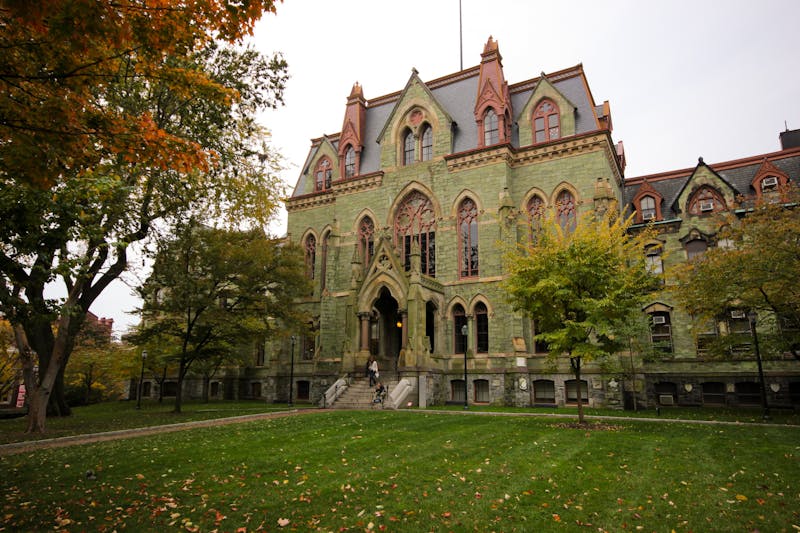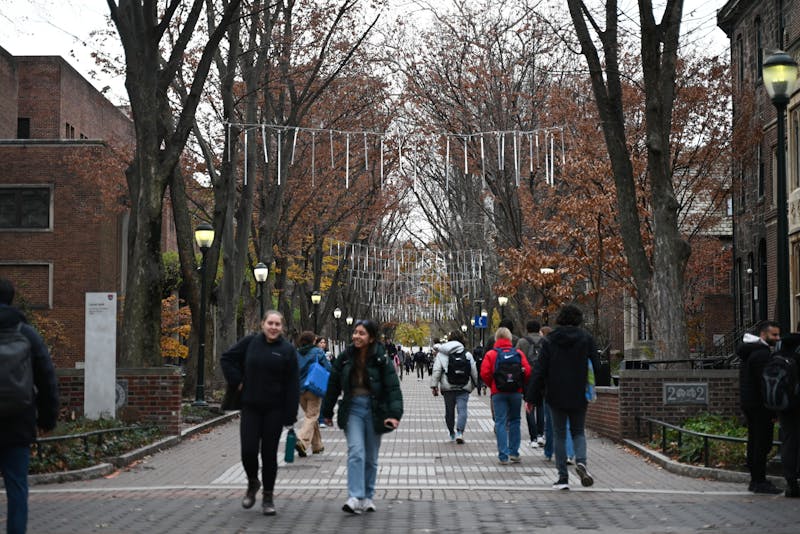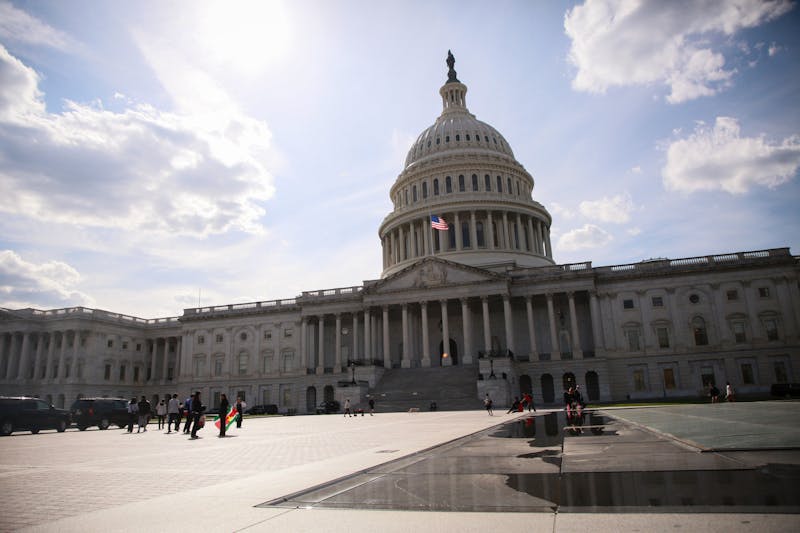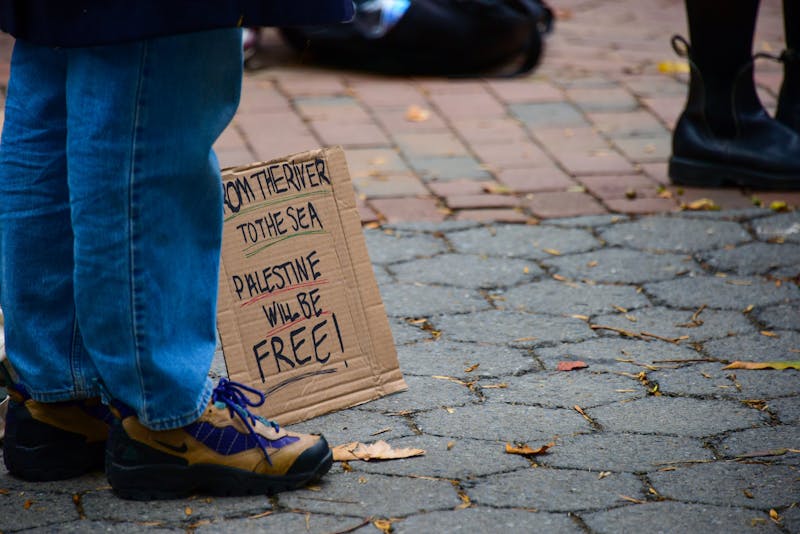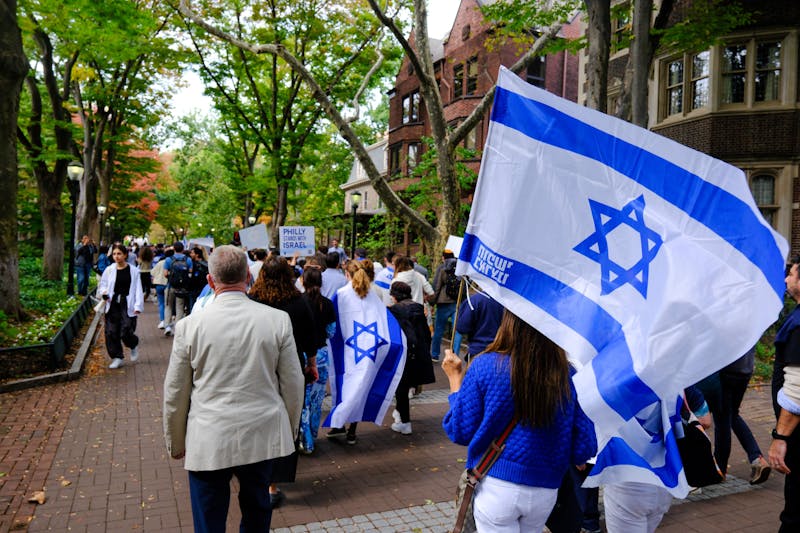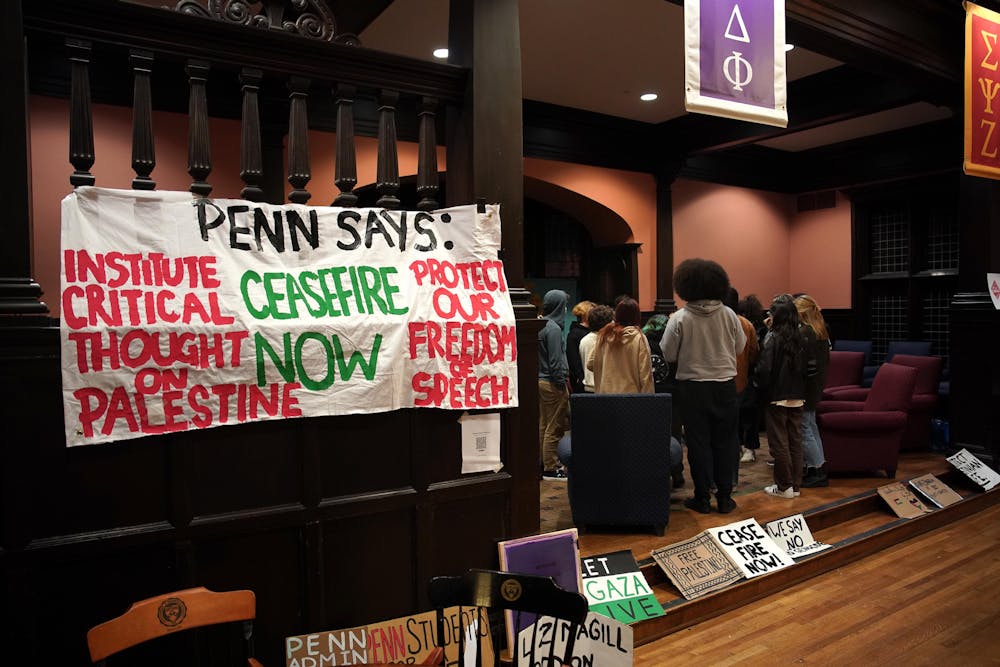
We write to announce the formation of Penn Faculty for Justice in Palestine (PFJP), a collective of those who support the teaching and research mission of the University, including faculty, lecturers, staff, and graduate employees. We have constituted ourselves in solidarity with the ongoing and ever-urgent struggles of Palestinians resisting occupation, warfare, and displacement.
The Israeli occupation of Palestine is one of the great moral and political issues of our time. At this moment, Palestinian life in Gaza is in dire crisis; the sheer scale of destruction demands an ethical response from all educators and concerned citizens. University trustees and administrators, under extreme pressure from private donors and right-wing federal legislators, are now subjecting teachers and students who are members of different Palestine solidarity movements to surveillance and, in some cases, to criminalization. Thus, for educators, the movement for justice in Palestine has become crucial to the defense of academic freedom, the preservation of open expression, and the integrity of scholarly inquiry and research in our universities. PFJP insists on the necessity of shared campus governance, in which administrators work with faculty, students, and staff to reject Islamophobic, anti-Arab, antisemitic, and other racist attacks and harassment by organizations both on and off campus.
Most recently, President Liz Magill, in response to hostile and uninformed questions from partisan members of Congress, resigned from her position after having failed to deny that there had been calls for “the genocide of Jewish people” on our campus. Nowhere did this happen. Rather than reject, or correct, the deliberate misreading of key events and terms, the President then pledged to “clarify and evaluate” acceptable speech on our campus, which indicates that our Open Expression guidelines will be rewritten. PFJP will join AAUP-Penn to defend our rights to unfettered scholarly research, debate, and critical thought and expression. We will also defend the right of our colleagues and students to protest and advocate for the non-violent principles enunciated by the US Campaign for the Academic and Cultural Boycott of Israel (USACBI).
We condemn all acts of terror and genocide. We decry any and all antisemitic actions as we do all threats directed against Palestinian students, faculty, and staff on our campus. For this reason, we are troubled by the one-sided rhetoric used in official University statements (many of which have since been deleted from Penn’s website) about campus life in the wake of the crisis in Palestine/Israel. Rather than work with faculty who have expertise on these issues, administrators have issued statements decrying antisemitic acts on our campus while ignoring the harassment of Palestinian, Arab, and Muslim students. Further, the University has paid little attention to violent threats directed at colleagues who have expressed solidarity with Palestinian life. Instead, the University has publicly aligned itself with the Anti-Defamation League and with the controversial definition of antisemitism issued by the International Holocaust Remembrance Alliance (IHRA). The University has refused to condemn the racist hate speech directed against faculty, staff, and students who are calling for justice for Palestine and an end to the catastrophic killing of tens of thousands of civilians. Administrative actions and inaction have served to exacerbate tensions on campus and enable the targeted harassment of anti-Zionist voices. PFJP will work to counter such tensions, and to inform, to counsel, and to bridge campus divides.
We have witnessed the Penn administration deny permission to a progressive Jewish student group, Penn Chavurah, to screen a documentary film critical of Zionism, Israelism, made by two Jewish filmmakers. It is a testament to the strength and commitment of our students that they screened the film and conducted a long, civil discussion after the viewing. The refusal of official permission to screen the film led to the resignation of the faculty director of the Middle East Center, who had agreed to sponsor the event. In this and other instances, such as the five-week Freedom School sit-in, our students are shouldering the work that should be central to the educational mission of our university. PFJP supports such activities and will develop similar educational initiatives.
PFJP is also deeply concerned about the inequality that structures the Penn administration’s formation of two separate task forces, one to investigate antisemitism, the other to investigate “the interconnectedness of antisemitism and other forms of hate, including Islamophobia.” In its insistence on seeing antisemitism and Islamophobia as discrete types of racism, the former more worthy of investigation than the latter, the University administration has not only ignored the long history that regards them as intertwined but has also further entrenched a false dichotomy between religions. In addition, this dichotomy ignores discrimination against Palestinians, Arabs, and other allies who are neither Muslim nor Jewish. More so, in numerous public statements, the University administration has inappropriately conflated opposition to Zionism with antisemitism. This is a scholarly and political error, and PFJP will work to counter its effects, especially in the context of suppressing speech and dissent during a time of war, mass killing, and displacement.
We refuse the false premise — and red herring — that the conflict is principally religious in nature (Jewish, Muslim, or non-Muslim), although religious and cultural differences undoubtedly play a critical role. Rather, the issues remain largely political (a matter of state violence, colonialism, anti-Palestinian racism, and genocide). Critiques of state policy and militarism, U.S., Israeli, or otherwise are not only valid but also imperative in this moment of humanitarian crisis.
PFJP pledges to join and support the work of Palestinian solidarity groups at Penn, in Philadelphia, and across the nation. We welcome the formation of the Penn Alumni for Palestine (PA4P), a collective of Penn graduates committed to supporting free speech on Penn’s campus and protecting students, faculty, and staff who are advocating for freedom and justice for Palestine. We applaud and support their campaign denouncing the recent “delegation” of Penn faculty’s visit to Israel. We join them in their urgent call to the Penn administration to clarify the nature of the delegation and its affiliation with the University. PFJP is committed to working in solidarity and close collaboration with PA4P’s efforts to advocate for Palestinian voices and those in solidarity with Palestinians on Penn’s campus and to demand broader, more informed, and equitable perspectives on Palestine.
Together, we call on all Penn faculty to uphold academic responsibility in their actions and decisions. We call on this administration or any future administration and the Board of Trustees to uphold the principles of academic freedom for all in our community. In the absence of institutional support, we will work to ensure the safety of all members of our campus community who stand in solidarity with movements for Palestinian justice. We will advocate for colleagues who fear discriminatory actions when they exercise their right to open expression as they speak for justice in Palestine. In doing so, we will renew our community and strengthen our commitment to the exchange of ideas and scholarship, which we understand to be the foundation of the University.
Penn Faculty for Justice in Palestine is a collective of faculty and teaching staff that has formed as part of a growing campus movement of over 80 Palestinian solidarity chapters nationally. Their email is pennfjp@proton.me.
The Daily Pennsylvanian is an independent, student-run newspaper. Please consider making a donation to support the coverage that shapes the University. Your generosity ensures a future of strong journalism at Penn.
Donate







